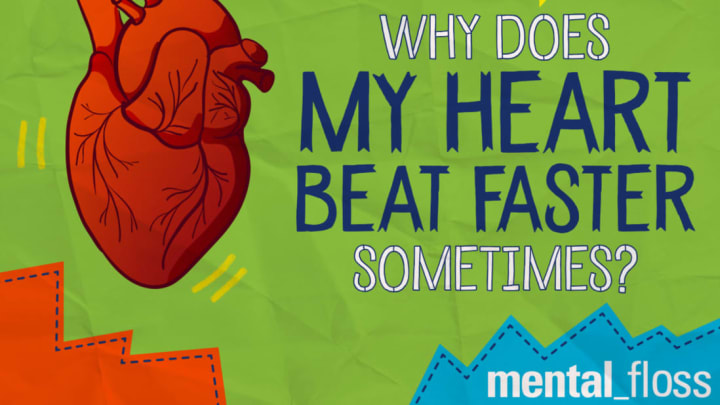WHY? is our attempt to answer all the questions every little kid asks. Do you have a question? Send it to why@mentalfloss.com.
You probably know that exercise—running, jumping, swimming, dancing—will make your heart beat faster. But did you know that your heart rate also speeds up when you feel scared, nervous, angry, or excited? Your movements and your feelings can give your heart a little workout. It’s your body’s way of making sure you are prepared for anything.
Your heart is a muscle that pumps blood to the lungs to get oxygen, and then to the rest of the body. That’s really important, because the cells in your body need oxygen to survive! When you exercise, your muscles need even more oxygen because they are working harder. The faster your heart beats, the faster it can get more blood and oxygen to your muscles. And when you feel scared, angry, or excited, your brain also tells your heart to be faster.
When your brain senses danger—like a bully at school, a fire, or an angry dog—it has to decide whether to stay and fight the danger, or run away from it. This reaction is called “fight or flight.” Fear causes the brain to release a chemical called adrenaline (uh-DREN-uh-lin), which speeds up your breathing and heart rate. The extra oxygen gives you the strength and brain power to fight back—or run away as fast as you can. This can happen even when you’re not in a life-threatening situation, but just feeling nervous or excited: watching a scary movie, performing on stage, having an argument with a friend, or riding a roller coaster.
Play this quick game from the BBC's Bitesize to see how activities change how fast the heart beats.
